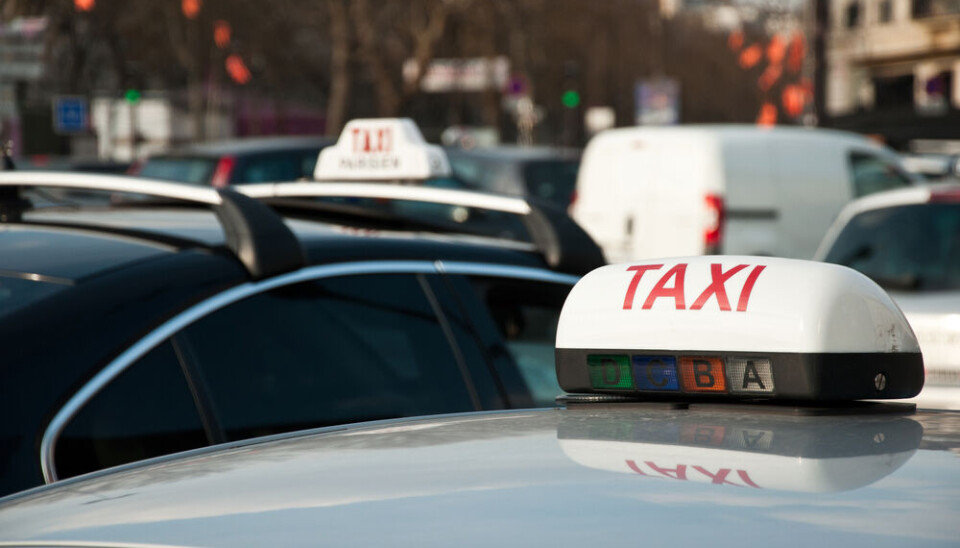Taxi driver protest blocks Paris ring road and motorways in south
Widescale disruption in towns and cities due to changes in how the state funds medical transport
A similar protest in December caused hundreds of kilometers of traffic jams around the country
NeydtStock / Shutterstock
A nationwide taxi protest caused widescale disruption in towns and cities around France on Monday, May 19 - and on the Paris ring road and motorways in the south in particular - over changes to how the state funds medical transport.
The ongoing protests are directed at a new nationwide pricing model due to come into force on October 1, and at the growing market share of ride-hailing platforms (VTCs).
Travellers are advised to check local updates and avoid affected roads where possible.
The president of the taxi drivers’ union la Fédération Nationale du Taxi (FNDT) also called for a “journée blanche” (white day), meaning many taxi drivers suspended all medical transport duties to hospitals on Monday.
The movement is described as reconductible – meaning actions could continue or be stepped up in the days that follow.
A similar protest in December caused hundreds of kilometers of traffic jams around the country
Where taxis caused major disruption
Var: Around 300 taxis slowed traffic on the A50, A57 and A8 motorways from early morning.
Convoys set off from Ollioules, Toulon and eastern Var from 05.30 with roadblocks at the Fréjus and Le Muy tolls.
Alpes-Maritimes: A gathering took place near the Allianz Riviera stadium in Nice, restricting access to the A8 motorway and Nice airport.
Marseille: Drivers organised go-slow operations on major urban routes and blocking access to the A50 and certain hospital access roads.
Toulouse: Convoys set out from Blagnac airport at 06:00, with blocking both directions of the city’s ring road from 07:45. Roadblocks also impacted the Purpan, Rangueil and Oncopole hospitals.
Lyon: 30 taxis were reported to be participating by 08:00, slowing and block ing traffic in the city centre, in particular on the M6 and near the train stations, hospitals and Lyon Saint-Exupéry airport.
Paris: A go-slow operation started on boulevard Raspail from 07:00. Others have been reported on the péripherique, the A6, A13 and N12, involving total of around 300 taxis.
Pyrénées-Orientales: A planned blockade of the A9 motorway toll booth at Le Boulou has been prohibited by the préfecture, which cited insufficient safety guarantees and lack of coordination with emergency services.
An alternative go-slow operation will instead take place on roads around Perpignan. The ban applies to all protests that would hinder traffic on the A9 between Salses-le-Château and Le Perthus.
Seine-Maritime: Go-slow operations and blockades are planned for Monday on the N28 at Rouen and the A13 between Tourville and Oissel.
Pyrénées-Atlantiques: A major protest took place in Prime Minister François Bayrou's hometown of Pau, with go-slow operations strangling access to the town centre.
People planning to travel on affected motorways should check for updates here before setting out
Why are taxi drivers protesting in France?
The movement centres on a new flat-rate system for taxis conventionnés - drivers approved to carry patients to medical appointments on behalf of Assurance maladie, the state health insurance system.
From October 1, payments will shift to a national base rate of €13 per trip, plus kilometre-based compensation set by each department.
Supplements will still be allowed for specific services, such as transporting patients with mobility issues.
At present, medical taxis are paid a base rate of €15 in addition to a €16 ‘prise en charge ‘ passenger handling fee as well as the kilometre rate.
The Assurance maladie says the reform aims to rein in costs, which reached €6.74 billion in 2024 - up 45% since 2019.
The body claims the new model will benefit two-thirds of departments, especially rural areas, and help reduce costly return journeys without passengers.
It is encouraging hospitals to set up booking platforms to coordinate rides more efficiently.
Taxi unions say the plan threatens their financial stability and access to patient care in underserved areas.
The FNDT says the reform "worsens territorial inequality" and puts the burden of poor administrative planning on drivers, who will no longer be able to guarantee the same level of service.
“We are despised by our ministers", said the FNDT president. “The chairman of Uber is received, but we who are French, who work on French soil and who have a very significant economy, are not even received by our ministers.”
Anger at ride-hailing platforms
Taxi federations are also demanding stricter controls on VTC platforms, which they accuse of flouting regulations, confusing the public, and using aggressive tax optimisation strategies that distort the market.
Their demands include:
an immediate freeze on the new medical transport convention
retention of locally set metered fares
the appointment of an independent mediator
robust enforcement of sector rules





























